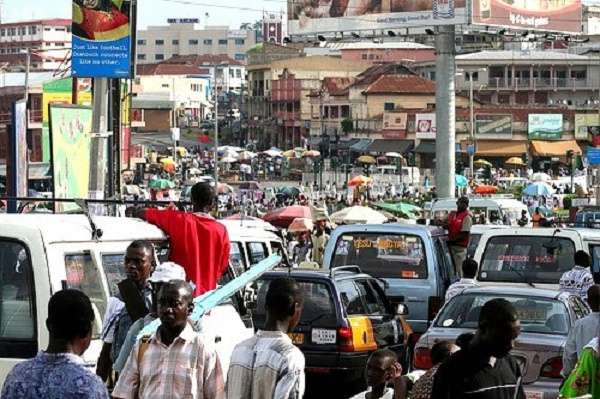Ghanaians are likely to face the brunt of a sixty per cent increase in transportation fares in 2024 due to the Emission Levy Bill which would take effect in January 2024.
According to the Ghana Private Road Transport Union (GPRTU), it has no choice but to increase transportation fares to the sixty per cent rate as the union and its members are already burdened with numerous taxes.
The Spokesperson for the Ghana Private Road Transport Union, Abass Imoro revealed that the introduction of the Emissions Levy Bill passed by Parliament imposes an annual charge of 100 cedis on all owners of petrol and diesel cars, starting from January 2024, hence the decision by the Union to increase transportation fares to the sixty per cent rate if nothing is done by government before the start of 2024.
Mr Abass Imoro further indicated that even though the Ghana Private Road Transport Union has written to the Speaker of Parliament, Rt. Honourable Alban Sumana Kingsford Bagbin for Parliament to consider a possible review of the Emissions Levy Bill as it will impose severe hardship on its members, the union has regrettably not received any response from the Speaker’s outfit.
“In the letter, we indicated that if nothing is done about it, we will increase lorry fare by not less than 60%”
Abass Imoro, Spokesperson GPRTU
The Spokesperson of the Ghana Private Road Transport Union, Mr Imoro emphasized that the decision by the Union is to help its members to contain the economic hardship that the tax resulting from the passage of the Emissions Levy Bill would impose on them.
Meanwhile, the Minority in Parliament had earlier opposed the Emissions Levy Bill’s approval, claiming the tax was ill-considered by the government.
The Minority Caucus contended that the charge levied on all private and commercial automobiles, ambulances, commercial motorbikes, and tricycles would exacerbate the nation’s already severe economic circumstances.
However, Dr Matthew Opoku Prempeh, the Energy Minister, defended the measure by pointing out that the world is moving away from internal combustion engines and that the new tax will help the nation enter the new era of electric vehicles.
Effects Of Increase In Transportation Fares On Citizens
It is without a doubt that a sixty per cent increase in transport fares in Ghana amidst the current economic situation would have several impacts on citizens, possibly affecting their daily lives and household budgets.
For instance, an increase in transport fares would increase the overall rise in cost of living in the country as citizens who rely on public transportation for their daily commute, such as workers and students, would experience a direct impact on their expenses.

Again, higher transport fares resulting from the sixty per cent increase in transportation fares by the Ghana Private Road Transport Union would lead to higher prices for goods and services as businesses factor in the additional transportation costs into their pricing. This, in turn, could affect the affordability of basic goods for consumers.
Moreover, low-income individuals, who are more likely to rely on public transportation, would be disproportionately affected as a significant increase in transport fares of sixty per cent would strain the budgets of these individuals and families, potentially leading to financial hardships.
It is, therefore, necessary for the government to take immediate steps to engage the Ghana Private Road Transport Union and other stakeholders to discuss the possible ways it could reduce the sixty per cent increase in transport fares to reduce the brunt the increase would have on Ghanaians.
READ ALSO: NPP Primaries: Survey Predicts Landslide Victory For Pro-Wontumi MPs In Ashanti Region























